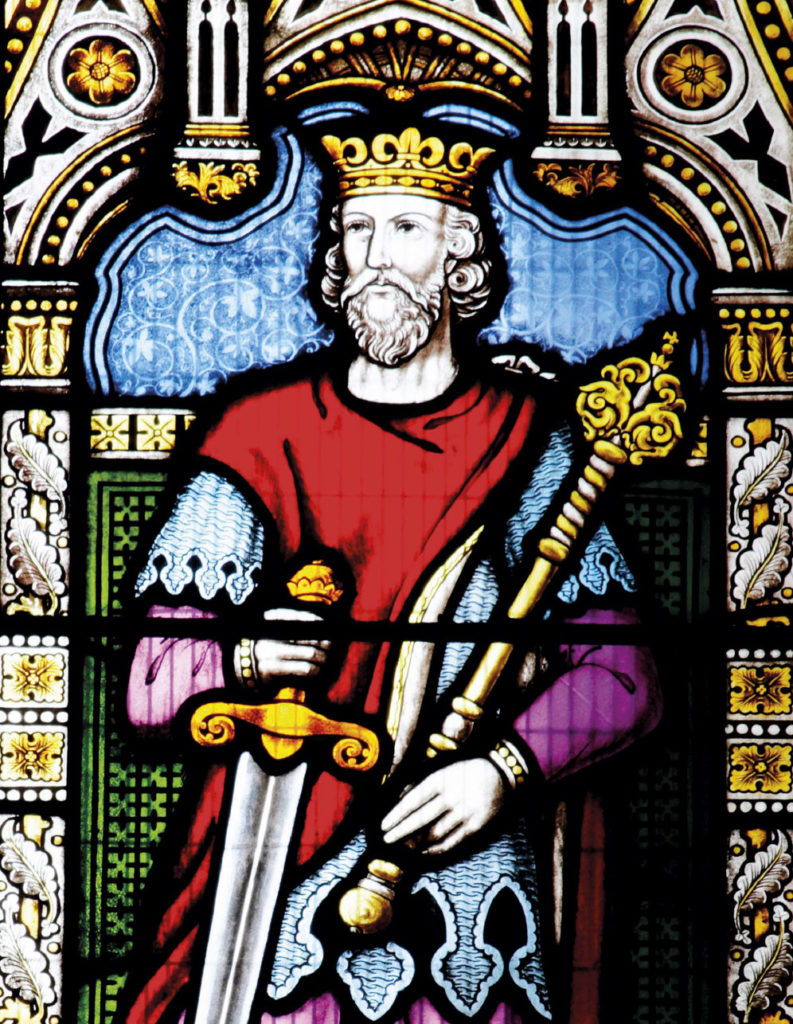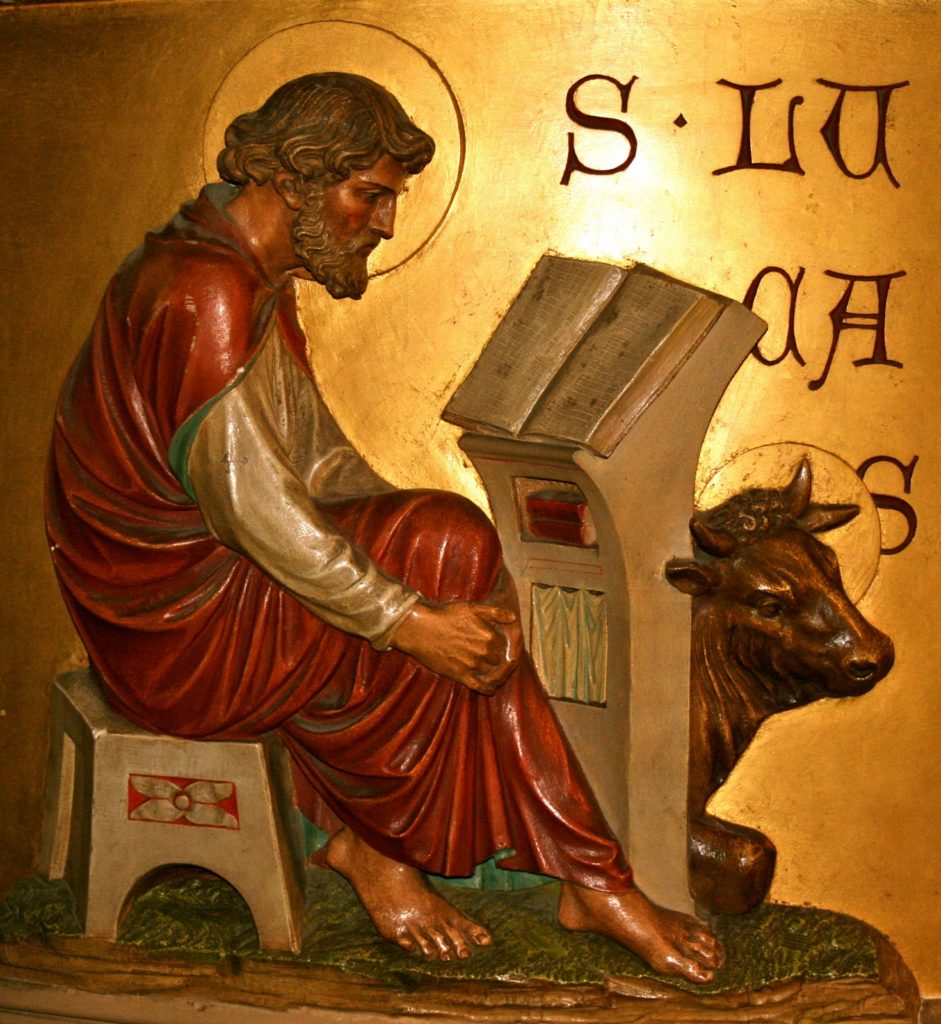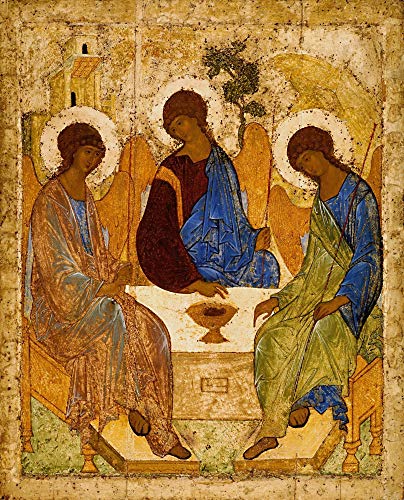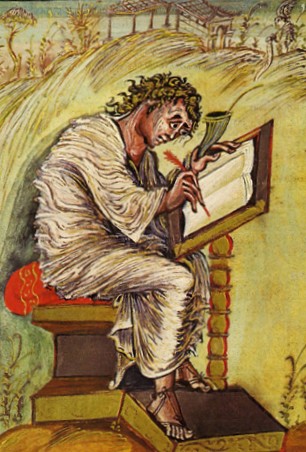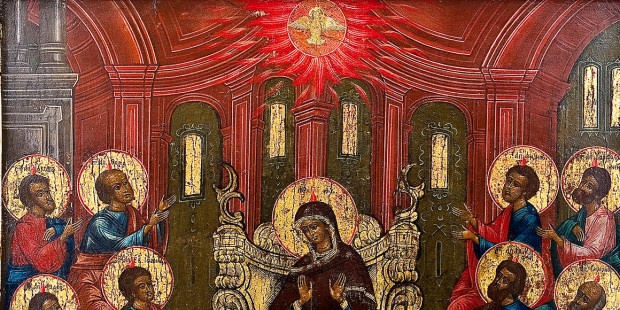
Pentecost
The readings for today are:
Genesis 11:1-9
Psalm 104:25-35, 37
Acts 2:1-21
John 14:8-27
Click here to access these readings.
If you’ve ever spent time in a foreign country, you know that something funny happens with your language. It happened to me while I was in Japan. And it was this: suddenly, with any warning (it seemed), I was utterly and completely illiterate. Signs – they meant nothing to me. Menus at restaurants, safety information that comes in furniture, my receipts, even my teaching contract; I couldn’t read a thing. Nor could I understand anything that was said, either. I sat in teacher’s meetings and only understood a few names. Every week I bought food at the grocery store and only understood a “please” or “thank you.” My students, who had about as much skill with English as I had with Japanese, tried in vain to tell me about their studies, or baseball, or themselves, or to ask about the U.S. And I could understand, or say, a little bit. Here I was, in a country that I had studied and loved for many years, and I couldn’t interact with it beyond, “Isn’t it sunny today.”
Now, I always knew that I’d be basically illiterate in Japan. I knew that my language skills (especially in speaking and listening) were pretty poor. I know that I’d have a hard time. But I didn’t expect it to be so frustrating. I’m a reader by nature. I like talking to people. I wanted to talk to people. I met people my own age, older folks who had lived through WWII, Buddhist monks who had such different beliefs than my own, and even fellow Christians who were about as excited to speak to me as I was to speak to them – and yet, there was that barrier between us. There was that barrier of language – a barrier that so often connects people together but here it was like the Tower of Babel, and language kept us apart.
And in all this frustration, there were little havens of calm and grace. One of these times I was up in Hokkaido, the northern island of Japan. I was on vacation with a bunch of friends, and they went off skiing. And since I’m horrible at skiing, I wandered around on my own for a bit. Then, on the train back to Sapporo, this young Japanese guy comes up to me and says, “Hey, are you American? Do you speak English?” You see, this guy loved English, just about as much probably as I loved Japanese. And he had just gotten back from studying in Australia, where he spoke this language he loved day in and day out. And, really, he was kinda lonely for it. He wanted to hear it again from a native, and to speak it himself.
We were immediately friends. We told each other about our families, where we grew up, our dreams and excitements and hopes, everything. In the seat in front of us was another guy, a young man from Korea who was travelling alone, and when he heard us talking and laughing, he turned around and joined in. His English wasn’t as good as the other guy’s, but he kept on with the story-telling as best as he could. It was great. And, for a while, I was home. Yeah, sure, I was fourteen time zones, 6,237 miles (I checked this) from where I was born. I was on a train, in a country where I was completely illiterate, talking to people who I had only met just that day, but I was home. In my language, I was home.
Pentecost is about being home. Well, Pentecost is about a lot of things, but one of the big things it’s about is being home. But it’s not just about being home but about hearing home. Because on the day of Pentecost, we remember a miracle. And it’s not just the miracle of the tongues of fire above everyone’s head, as I have pictured on the front of your bulletins. It’s the miracle that, suddenly, the disciples were preaching the Gospel, they were speaking of the devotion and love and hope of God, not just in one language, but in every language. But not as if the Holy Spirit were some sort of spiritual Google Translate, where you put in the Gospel and it churns out some wacky translation that makes little sense to a native speaker. No, the miracle here is that the lonely Parthian over there, far from home that he can taste it in his dreams, suddenly hears the tongue he grew up with; or the Egyptian hears the exact accent of Egyptian of his beloved wet-nurse. These people hear the Gospel, the Gospel of salvation and love and hope, not in a foreign language that they barely know, or a second language they’re struggling to make sense of; but their own language, their mother tongue, the language they were raised in and in which they were taught who they were, the language they thought in, dreamed in, argued in, and hoped in. It was in this language, so close to their hearts, that they heard the Gospel.
And this is a miracle, I think, that we often miss: that God saw fit to say, not “Come over here, I’ve got something to tell you” but “I will come to you.” Now, there are many things in Christianity to which we need to align ourselves. We are to die to sin and be risen (not “raise ourselves” but “be risen”) by God into new life. We are to remake our lives, by the Holy Spirit, according to the Scriptures and the teachings of the Church. We are to practice the virtues of wisdom, courage, temperance, justice, faith, hope, and charity. And all of these things are not in ourselves but in God. Just as we say in the Baptismal Covenant, we must turn, each and every day, from the powers of evil and to the goodness of the Lord.
So are we called to live a life to Christ, but the language of this call, and it’s voice, speaks to our heart of hearts. In the story here in Acts, on the day of Pentecost, this took the form of an actual language, but it’s much bigger than that. God created each of us not as carbon copies of one another but as distinct individuals. And God, in raising us up to be his own daughters and sons in the image of Jesus Christ, God does not erase who we are. We aren’t like those old floppy disks full of corrupt information that God needs to reformat and start again. We aren’t even like a weedy garden that God has to spend time with in the dirt, yanking out the bad and sticking in new, prettier plants. We are God’s children, his beloved, and those good things that we love, those things we hope for and yearn for, all those things that we go to in love, these are the things through which God calls us and hopes for us as well. There’s quite a bit of death before the resurrection, surely, and that death can sometimes feel like being nailed up on a cross, but at the end of the day what God is aiming for is not the death, not the pain and sorrow of loss, but the resurrection, the golden light of the new dawn on all of our Easter day. And God gave us these things that we love – be they our gardens or our children and grand-children, works of great literature or whatever college football team you root for – God gave us these gifts in love to pull us up towards himself. Just as the people on Pentecost heard the Gospel in their own tongues, erasing the destruction of Babel, so too do we hear the Gospel in the love language of our own soul, which God made.
Today is Pentecost, and it’s the start of the season of Pentecost. We call it Ordinary time, but it’s anything but ordinary. For the past half-year, ever since Christmas, we’ve been hearing about and thinking about Jesus’ life, his death, and his resurrection, and about the life that he brought to us in Salvation. But now, now in Ordinary time, we listen to God’s call to us on Pentecost to help bring that light out into the world. And what does that look like? Well, we’ve got six months of Ordinary time to talk about it and discuss it. But at its core, it’s the same work of Pentecost: for just as God met us where we are, and called us through our joys and sorrows and hopes, so are we called to be present in the lives of others, to speak to them the Good News of Jesus Christ in a language they understand. In our world, putting ourselves – our own needs and our own path – aside to sit and listen to another, then to preaching a Gospel of mercy, forgiveness, and love; that’s a rare thing in our world. But it’s the work of the Spirit. It’s the life of Jesus Christ that we’ve just heard about and walked through ourselves these past six months. And it is a call from God, our Creator, our Redeemer, and our Sanctifier, to love, to love, and to never stop loving.

